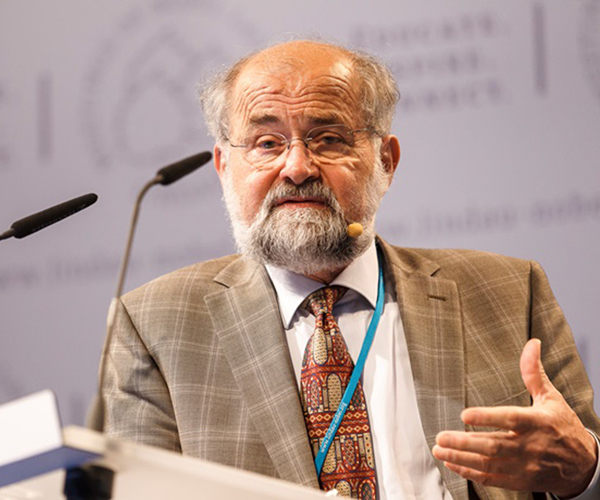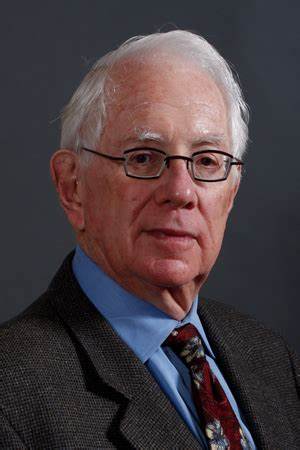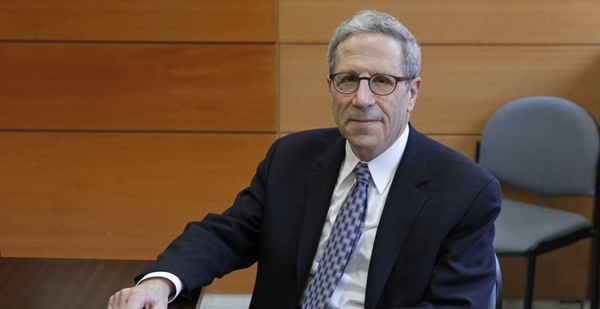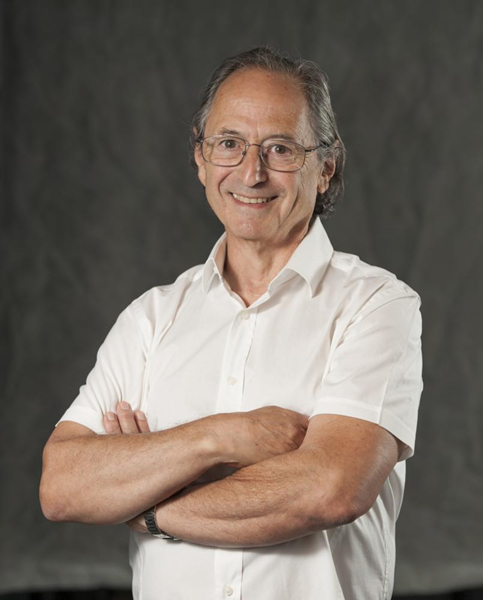Chinese scientists dialogue with Nobel Prize winners
Co-organized by the National Communication Center for Science and Technology, CAST and Baidu, the "2020 Why do we pay so much attention to the Nobel Prize" live dialogue event invited Chinese scientists and Nobel Prize winners to dialogue on line from Oct 1 to 4.
Participating Nobel Prize Winners included Erwin Neher, laureate in Physiology or Medicine, Sheldon L. Glashow, laureate in Physics, Michael Levitt, who won the prize in Chemistry and Eric S.Maskin, who won it in Economic Sciences. They were joined by Chen Hesheng and Tan Weihong, academicians of the Chinese Academy of Sciences (CAS), and Dong Jiajia, researcher of the Shanghai Institute of Organic Chemistry. The activity attracted more than 9 million netizens on line.
On Oct 1, Sun Jianyuan and Zhu Yingjie, researchers of the Shenzhen Institutes of Advanced Technology of CAS dialogued with Neher on how current scientific research promotes cooperation between countries in the field of medical care.

Erwin Neher, the winner of Nobel Prize in Physiology or Medicine in 1991.
Neher suggested that humans should use local resources and technologies to serve the globe. Sun said that in the future, not only government, but also more enterprises or individuals need to focus on and support research. "Scientists around the world should unite to address infectious diseases. We also can set up some joint scientific research projects inviting scientists from different countries to cooperate together," said Zhu.
On Oct 2, Chen Hesheng, CAS academician and particle physicist, discussed with Glashow the importance of basic scientific research in the context of globalization.
Glashow thought that basic scientific research and applied science do not have very clear differences and gaps. Many basic science theories have been used in business and have promoted the developments of industry and communication. Chen said that today's science will be tomorrow's technology. In the 20th century, physicists really played a big role in promoting the world's progress as well as that of ordinary people. In the future, the story will be the same. Their influence may even play a more important role.

Sheldon L. Glashow, the winner of Nobel Prize in Physics in 1979.
On Oct 3, Tan and Dong dialogued with Michael Levitt on the significance of computer technology for epidemic research.
Levitt shared that fighting against COVID-19 should rely more on scientists as well as some nonspecialists and scientists from other industries and fields to gain a broader perspective. Tan added that the epidemic should encourage chemists to better understand molecular interactions in the human body and to use molecular to fight against diseases. "We should establish some more professional small molecular laboratories and design more reliable monitoring processes to respond in a timely way to relevant cases," Dong added.

Michael Levitt, the winner of Nobel Prize in Chemistry in 2013.
On Oct 4, Li Daokui, director of the Center for China in the World Economy (CCWE) at the School of Economics and Management of Tsinghua University, Wang Huiyao, founder of the Center for China and Globalization (CCG) and Xu Hongcai, deputy director of the Economic Policy Committee of the China Association of Policy Science, exchanged ideas with Maskin on what mechanisms are best suited to measure global economic trends in the post-epidemic era.
"I very much agree with methods that use fiscal and monetary policies to stimulate the downward economy. I believe government will play a positive role in this part," Maskin said. Li suggested that governments around the world should firstly cooperate with each other to maintain globalization and the integrity of global supply chains; and secondly local governments should actively improve infrastructure and investment environments as well as increase scientific research spending to provide energy for long-term economic development. Wang believed that China's economic internal cycle has direct and indirect effects on the world. Xu held the opinion that China should encourage more elements to flow between urban and rural areas. It should liberalize more fully the free flow of money in free trade areas and pay more attention to high technology and the high added value of some industrial chains.

Eric S.Maskin, the winner of Nobel Prize in Economic Sciences in 2007.








